
Language and Literacy
Scope & Guideline
Championing Open Access for Language and Literacy Research
Introduction
Aims and Scopes
- Multiliteracies and Multimodality:
The journal explores the concept of multiliteracies and the use of multimodal approaches in literacy education, recognizing the importance of diverse forms of communication and expression in contemporary learning environments. - Culturally Relevant Pedagogy:
A core area of focus is on culturally responsive teaching practices that address the needs of diverse learners, particularly those from marginalized backgrounds, and how these practices can enhance literacy development. - Impact of Social Justice on Literacy:
The journal often integrates themes of social justice and equity, examining how literacy education can serve as a tool for empowerment and advocacy within various communities. - Technological Integration in Literacy:
Research on the use of digital technologies and their impact on literacy practices is a prominent theme, reflecting the changing landscape of education in the digital age. - Teacher Professional Development:
The journal emphasizes the importance of professional development for educators, exploring innovative strategies to enhance literacy instruction and support teacher growth.
Trending and Emerging
- Pandemic-Influenced Literacy Practices:
The impact of the COVID-19 pandemic on literacy practices has become a significant theme, with many studies examining adaptations in teaching methods and the resulting implications for literacy development. - Translanguaging and Multilingualism:
There is an increasing focus on translanguaging and the role of multilingualism in literacy education, emphasizing the value of diverse linguistic resources in supporting learner engagement and identity. - Social Justice and Equity in Literacy:
Emerging discussions around social justice and equity in literacy education highlight the need to address systemic inequalities and promote inclusive practices that reflect diverse voices. - Digital Literacies and Technology Integration:
The integration of digital literacies and technology into literacy instruction is trending, as researchers explore innovative practices that leverage digital tools to enhance student learning. - Community Engagement and Literacy Development:
Research is increasingly focusing on the role of community engagement in literacy development, examining how collaboration with families and local organizations can support literacy outcomes.
Declining or Waning
- Traditional Literacy Instruction Methods:
There is a noticeable decrease in the emphasis on traditional literacy instruction methods, as newer, more progressive pedagogical approaches gain traction and focus on inclusivity and multimodality. - Focus on Standardized Testing:
Research related to standardized testing and its impact on literacy education appears to be less prominent, as discussions move toward more holistic and formative assessment practices. - Monolingual Literacy Practices:
The exploration of monolingual literacy practices is waning, with a growing recognition of the importance of multilingualism and translanguaging in literacy education. - Print-Centric Literacy Approaches:
There is a declining interest in print-centric literacy approaches, as the field increasingly acknowledges the significance of digital literacies and the multimodal nature of communication. - Historical Perspectives on Literacy:
Themes focusing on historical perspectives of literacy education are becoming less prevalent, with a shift towards contemporary issues and practices that address current educational challenges.
Similar Journals

Studies in Language Assessment
Empowering educators with best practices in evaluation.Studies in Language Assessment, published by the ALTAANZ - Association of Language Testing and Assessment Australia, provides a critical platform for the dissemination of research in the ever-evolving field of language assessment. With the notable ISSN 2653-5335 and E-ISSN 2653-5335, this journal focuses on innovative methodologies and best practices in language testing and evaluation, aiming to enhance educational outcomes globally. As an Open Access publication, it fosters accessibility to cutting-edge research findings, allowing professionals, researchers, and educators to exchange knowledge and improve assessment strategies. Although specific metrics such as HIndex and Scopus Ranks are currently unavailable, Studies in Language Assessment remains a vital resource for anyone interested in advancing the quality and effectiveness of language assessment practices. Located in PARKVILLE, VIC, AUSTRALIA, this journal stands at the forefront of the discourse on language evaluation, making it an essential reading for those committed to excellence in language education.
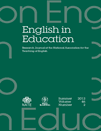
English in Education
Championing Scholarly Excellence in Language and LiteratureEnglish in Education, published by Taylor & Francis Ltd, is a premier journal dedicated to the broad field of education, with a specific focus on the interplay of language, literature, and pedagogy. Since its inception in 1964, this esteemed journal has become a vital resource for researchers, educators, and students alike, offering a platform for innovative research and scholarly discourse. With an impressive impact factor and categorized in the top quartiles of both Linguistics and Language, and Literature and Literary Theory, it ranks among the top journals in its field, denoting its significance and influence. The journal aims to advance understanding and practice in English education through rigorous peer-reviewed articles, theoretical explorations, and empirical studies that address contemporary challenges and developments in these intertwined disciplines. The journal’s commitment to excellence is reflected in its Scopus rankings, highlighting its critical role in fostering research that informs and enriches educational practices. Although currently not open access, English in Education remains an essential outlet for professionals seeking to contribute to the evolving landscape of English language and literature education.
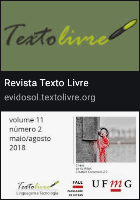
Texto Livre-Linguagem e Tecnologia
Bridging Language and Technology for a Connected Future.Texto Livre-Linguagem e Tecnologia is a prominent academic journal published by the Federal University of Minas Gerais, Faculty of Letters, specializing in the interdisciplinary domains of language, technology, and communication. Since its establishment, the journal has embraced an Open Access model, fostering unrestricted dissemination of research findings. With an ISSN of 1983-3652, it aims to bridge theoretical insights and practical applications in linguistics and technology, thereby enriching scholarly dialogues worldwide. The journal's recent classifications in the 2023 Category Quartiles highlight its relevance, achieving Q3 in Communication, Q4 in Computer Science Applications, and Q2 in Linguistics and Language. Additionally, it has earned respectable Scopus rankings, placing it within the 71st percentile for Language and Linguistics in the Arts and Humanities. This positions Texto Livre as a vital resource for researchers, professionals, and students keen on exploring the dynamic interplay between language and technology. By engaging with cutting-edge research, contributors and readers alike can shape the future discourse in these critical fields.

Australian Journal of Language and Literacy
Exploring the nexus of linguistics and education.The Australian Journal of Language and Literacy, published by SpringerNature, is an esteemed platform for advancing research in the fields of linguistics, language, and education. With an ISSN of 1038-1562 and an E-ISSN of 1839-4728, this journal has been a crucial resource since its inception in 1997, now converging into its 2024 volume. It proudly holds a significant position within the Q2 category in Linguistics and Language and a Q3 classification in Education for 2023, reflecting its commitment to high-quality scholarly content. With impressive Scopus rankings in arts and humanities and education, it engages a diverse audience of researchers, educators, and linguists. Although this journal is not open access, it remains an essential resource for those seeking to enhance their understanding of language acquisition, literacy development, and pedagogical approaches. By contributing to the discourse in these vital areas, the Australian Journal of Language and Literacy plays a pivotal role in shaping the educational landscape in Australia and beyond.

ALSIC-Apprentissage des Langues et Systems d Information et de Communication
Empowering Language Learning Through Innovative Research.ALSIC-Apprentissage des Langues et Systems d Information et de Communication, published by ADALSIC, is a premier Open Access journal that has been at the forefront of language learning and information and communication systems since its inception in 1998. With its ISSN 1286-4986, this journal provides a crucial platform for researchers, educators, and practitioners to share innovative findings and pedagogical practices in the interdisciplinary fields of linguistics, education, and technology. The journal invites contributions that explore the dynamics of language acquisition, the effectiveness of communication systems, and the integration of technology in learning processes. By maintaining an Open Access policy, ALSIC ensures that its valuable research is accessible to a global audience, promoting collaboration and knowledge sharing among scholars and professionals dedicated to enhancing language education and communication methodologies. As an inclusive journal based in Strasbourg, France, it plays a vital role in shaping current discourse and advancing research in its field.

TESL Canada Journal
Bridging Theory and Practice in Language LearningTESL Canada Journal, published by TESL Canada, serves as a vital resource for researchers, educators, and practitioners in the field of English as a Second Language (ESL) and applied linguistics. With its commitment to advancing scholarship and best practices in language education, this esteemed journal fosters a platform for the dissemination of high-quality research and innovative pedagogical approaches. Although it operates without open access, its comprehensive articles and reviews offer valuable insights into current trends and challenges faced by ESL educators across Canada and internationally. The journal is dedicated to promoting a deeper understanding of language acquisition processes and instructional methodologies, contributing significantly to the professional development of its readership. Located in Burnaby, Canada, the journal aims to bridge the gap between theory and practice, making it an indispensable source for educators and researchers looking to enhance their expertise in ESL education.
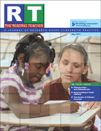
READING TEACHER
Connecting research to practice in reading education.READING TEACHER is a premier journal dedicated to the field of literacy and language education, published by Wiley. With a robust impact factor and a distinguished Q1 ranking in Linguistics and Language, this highly regarded journal serves as an essential resource for educators, researchers, and students aiming to enhance reading instruction and literacy development. The journal covers a broad range of topics within the domain of language and literacy, offering insights into innovative teaching methodologies, research on reading behaviors, and best practices for educational engagement. As the field continues to evolve, READING TEACHER remains committed to advancing scholarship through rigorous peer-reviewed research. Researchers and practitioners can access articles from the journal to stay updated on the latest findings and trends shaping literacy education. For those engaged in the critical study of language acquisition and reading instruction, READING TEACHER is an invaluable part of their academic journey.
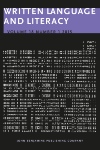
Written Language and Literacy
Elevating the Dialogue on Language and Literacy StudiesWritten Language and Literacy is a leading academic journal that has been at the forefront of language and literacy research since its inception in 1998. Published by John Benjamins Publishing Co in the Netherlands, this journal provides a platform for innovative and rigorous studies exploring the intersections of language, literacy, and cognitive processes. With an impressive impact factor and classified in the Q2 category for Linguistics and Language, it offers valuable insights and methodologies that contribute significantly to the field. The journal ranks 498th out of 1088 in Arts and Humanities and 577th out of 1167 in Social Sciences, placing it firmly within the academic conversation on language studies. Though it does not offer open access, it remains highly sought after by researchers, professionals, and students, ensuring a rich collection of knowledge essential for advancing literacy and language practices in diverse contexts.
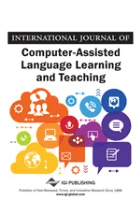
International Journal of Computer-Assisted Language Learning and Teaching
Shaping the future of language teaching with innovative practices.Welcome to the International Journal of Computer-Assisted Language Learning and Teaching, a premier publication by IGI Global dedicated to advancing the interdisciplinary research at the intersection of linguistics, education, and computer science. With an ISSN of 2155-7098 and an E-ISSN of 2155-7101, this journal aims to provide a platform for innovative studies on the implementation and effectiveness of technology in language learning and teaching. The journal has earned notable recognition within its field, securing a Q1 ranking in Linguistics and Language and strong placements across several categories in the 2023 Scopus Ranks, including a Q3 classification in Computer Science Applications and Computer Vision and Pattern Recognition. Researchers and educators are encouraged to contribute their findings to foster dialogue around effective computer-assisted methodologies and instructional practices. Although the journal is not open access, it remains a vital resource for researchers, professionals, and students seeking to enhance the efficacy of language education through technological innovation.
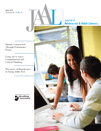
JOURNAL OF ADOLESCENT & ADULT LITERACY
Connecting Research and Practice in Literacy EducationJOURNAL OF ADOLESCENT & ADULT LITERACY is a prestigious publication dedicated to the exploration and enhancement of literacy education for adolescents and adults. Published by Wiley, this journal holds an important position in the educational research landscape, marked by its Q2 ranking in Education for 2023, reflecting its commitment to high-quality scholarship. With an ISSN of 1081-3004 and an E-ISSN of 1936-2706, this journal serves as an essential resource for educators, researchers, and policy-makers in understanding literacy development, instructional practices, and the sociocultural factors influencing literacy. Covering a comprehensive timeline from 1995 to 2024, the journal is well-known for its rigorous peer-reviewed articles, providing insights into innovative practices and empirical research that support literacy advancement. Located in the United States, with its headquarters at 111 RIVER ST, HOBOKEN 07030-5774, NJ, the journal does not offer open access but remains an invaluable asset for stakeholders in the realm of education, encouraging discourse and collaboration to foster literacy in diverse and dynamic contexts.